|
We use social skills in a broad sense every day. In a work environment sometimes referred to as soft skills, they enable us to work as a team, practice empathy and relate to others. Social skills are learned. We are born seeking relationships, seeking interaction, but it’s through practice and watching others that we learn how to implement social skills. Elementary school age children are the perfect example that these skills are learned, we see them practicing them every day. We see children bullying others or learning to compromise. The playground is a great big mixing bowl where kids can learn which skills will serve them and which won’t. Social skills are needed not only on the playground, but at soccer practice, in school, visiting grandparents and at the park. There are four skills sets that, if mastered, tend to promote healthy relationships in the long term. Research gathered by the Center for Parent Information and Resources found that when addressing social skills, successful interventions have some things in common. For example, the interventions focus on reflection and self awareness. Secondly, when children are walked through each step in the new skills, they are better able to retain and generalize it. When role-playing is used or specific skills are practiced in a group environment, children are able to master the skills. You will see these principles built into the suggestions to use for your child. Making and keeping friends It’s adorable to see young children walk up to one another at the park and confidently say, “Hi, my name’s Jack, do you want to play?” This is an example of a child who has been taught the social script for making an introduction. From here children learn to build by asking others questions, or inviting others to join in play with them. The ability to make and keep friends relies on a child’s ability to empathize, see things from another’s perspective and compromise. Young children are naturally egocentric, this is a normal developmental stage. Around age 4, children develop what is referred to as theory of mind, the understanding that others may have a belief, intention or knowledge that is different than their own. This is a developmental leap that allows them the capacity to engage in more meaningful friendships. If your child is struggling with this skill, you may put on your detective hat and do some observation while your child is at play. Is he isolating himself, hesitant to join others? Once he begins engaging with others, does he tend to become bossy and set the rules of the game? When you see one of these things happening, pull your child aside and say something like, “I noticed when you told Abby that she wasn’t playing the game right, she frowned and walked away. What do you think she might be feeling?” Continue to process this event with your child and help your child problem solve a way that will lead to the interaction the child wants. Encourage your child's ability to take the perspective of the other child and find a solution that works for everyone. Emotional regulation Emotional regulation is an umbrella for important skills such as impulse control and identifying and expressing feelings appropriately. If a child is consistently losing control and acting aggressively toward peers, that child is often ostracized and avoided. Impulse control plays a role in friendships. A child who is able to wait his turn or stay calm enough to be in a conversation with peers is more socially adept. Gaining emotional regulation begins with identifying emotions. You can encourage your child to notice changes in his body, for example, fists tightening when he is feeling anger. In order to regulate these strong emotions, the child first needs the ability to identify them. Once a child is able to pause between noticing a strong emotion and reacting to it, he can make a more calculated decision. Modeling this behavior for your child is often the best teaching tool. If you begin to become frustrated, you might say out loud, “I’m starting to get upset, I am going to sit down and take a few deep breaths.” This will show your child that each of us is responsible for managing how we feel and that even adults need a break sometimes. Sportsmanship Team sports are an excellent setting to practice social skills. Children are required to work together, handle disappointment and take turns. If your child is struggling with social skills it’s a good idea to encourage a team sport, that way she will have a consistent chance to practice improving her skills. Sometimes poor sportsmanship is rooted in a child's anxiety about her performance. Perhaps if she misses a shot she feels embarrassed or she is sensing underlying pressure from family members to succeed. Before she can improve her social skills in this area, she needs to be free of such barriers. Visualization and self-talk are good skills to practice if your child struggles with poor sportsmanship. Identify the triggers. For example, does your child lose control when the team loses? If so, review what self-talk might be occurring. Is she telling herself something like “you are the worst, you’ll never win.” Suggest an alternative, such as, “We didn’t win this time, but I played my best.” Refuting self talk takes practice. Use visualization by walking your child through what thoughts and feelings she may feel when the team loses, prompt her to use positive self-talk and visualize herself maintaining control. Conflict resolution Conflict resolution is another skill that is impacted by maturity. Our ability to use higher-level thinking such as planning and problem-solving doesn’t develop in our brains until we are well into our 20s. Despite this, elementary school age children can practice skills that will aid them in relationships. It is very common for children to struggle with ways to address conflict. Some children lack the confidence and skills needed to advocate for themselves, and as a result are stepped on by other children more willing to assert their wishes. Conversely, some children may bully others or use aggression to get their needs met. Keep in mind all of these skills are learned. Our expectation that children should always be seeking the most fair solution for everyone isn’t realistic. Compromising is a skill that is important if you live in a society that values cooperation. It isn’t in our DNA to solve problems peacefully, but it is “nurtured” into us. Improving conflict resolution relies on a child’s ability to hone the previously noted skills, of empathy, emotional regulation and good sportsmanship. This skill is most effectively addressed right when the conflict is occurring. This is the aim of social skill groups facilitated by play therapists. But you can also practice this skill with your own child. When conflict occurs between siblings or friends, consider asking the child to take a break for a few minutes to calm down if the conflict has risen to an aggressive level. Afterwards, practice talking through the thoughts and feelings the child had during the event and challenge the child to identify thoughts and feelings the other child may have felt as well. Prompt the child to consider an alternative, for example, rather than hitting and taking a toy, suggesting asking an adult for help, or finding another toy to play with. The barrier to conflict resolution without aggression is often impulsivity. If you can stop the child from acting out and walk through her choices, (and practice this over and over again), she will have a much better chance of doing it on her own. I often consider these social skills as life skills. They are the foundation of all relationships. Each interaction you have with your child has the potential to teach the child pro-social ways of interacting. We know that the playground can sometimes be the Wild West of childhood. But children who are able to navigate it effectively will be ready for the workforce — the Wild West of adulthood. Last year you were sitting in the same spot in your home, looking at your tree and thinking to yourself, maybe next year I’ll be sitting here holding a baby. But, then the year goes by and it’s Christmas again and your arms are heavy with the sadness that only infertility can bring.
The holidays are child-centric. Thanksgiving, Hanukkah and Christmas engender images of rosy-cheeked children with their families. Because of this, it can be a difficult time for those of us trying to conceive. It can feel lonely. It can feel sad and isolating, in particular when there is an unsaid expectation that this is “the most wonderful time of the year.” The questions you know they’ll ask Holidays can be tricky with family members. Infertility is rarely understood by those who don’t experience it. Everyone has a version of great-aunt Sue who always asks “when are you going to give your parents some grandchildren?” If you haven’t discussed your infertility with family members you are bound to get some of these questions. This doesn’t mean that you are required to let your family know the details of every last test you’ve undergone. But, it is useful to have a response ready such as “that’s something were looking forward to in the future” or “it’s not as easy for everyone to get pregnant as you may think. We are working on building our family with the help of a reproductive endocrinologist.” Likewise, you aren’t required to share information with family members if you aren’t comfortable, discussing with your partner what you’d like to share and with whom may be helpful. New traditions, and opting out of old ones You may consider getting out of town or doing something alone with just your partner. If it’s painful to go to your sister's house and watch your nieces and nephews open presents, don’t do it. You could suggest just arriving for brunch or dinner. Before the event occurs picture yourself at the family party and feel it out: Does it feel forced? Are you holding back tears? Give yourself the gift of permission and self-acceptance this year. If it’s painful to try to carry on like nothing is wrong, don’t do it. Gratitude and service Remember the reason for the season. Although cliche, it does change our perspectives when we are able to provide service or time to someone who needs it. Infertility is all-encompassing and it’s easy to feel enveloped in grief. Consider spending some time with an aged relative or volunteering in your community. Not only will it help others, but it will also provide you with the realization that although you are struggling to build your family, you have a house over your head, food and access to health care. If you are passionate about infertility and have an interest in advocacy, Resolve, a national infertility organization, is often seeking volunteers. Give yourself a break, you are grieving This one is most important. All of the clients I see need to be reminded that perhaps they don’t feel as happy as they used to or don’t have that sparkle in their eyes because they are grieving. Infertility isn’t seen, you can’t point to a broken arm and say “this is why I’m upset,” but it’s there. You are grieving the loss of a dream. You are grieving the idea that your life would be a certain way. Many of my clients say that they always imaged themselves a parents and with infertility it’s out of your control. No matter how hard you work at it, how much you want it, those things don’t calculate like they might when you’ve worked toward other goals. This is frustrating and makes us feel helpless and beaten down. Now is the time to practice good self-care, to be aware that you might not have the emotional strength to hold it together like you normally can. That’s OK, that’s honest. Be kind to yourself. Lastly, the holidays will eventually come to an end. The best thing you can do is be prepared, know what your limits are and set a calendar in place that honors where you are emotionally this year. And somehow, hold onto hope for next. Few things are more exciting to me then when "good parenting" is validated by science! Perhaps it's a throw-back to my early interest in chemistry and fascination with Albert Einstein. Even if science isn't your thing, if you are a parent, this information will be of interest to you. Read on.
Isn’t it great when science validates something we intuitively know? Such is the case with Dr. Michael Meaney, a professor of McGill University with an interest in maternal care, stress and gene expression. In the Annual Review of Neuroscience he published work centered on the natural variation he noticed in licking and grooming by mother rats. He found that the kind of care that mother rats provide to their offspring alters genes responsible for stress response. The rat pups who experienced more licking and grooming were identifiable by the anatomy of their brain. When Meaney followed the rat pups into adulthood he found that those who were licked and groomed were better at completing mazes and even lived longer. The mechanism at play is that those pups who were licked and groomed produced fewer stress hormones when faced with a challenge. This is important, because he know in humans, when our brains are bathed for too long in stress hormones we are always “on alert,” anxious and exposed to an increased risk of mental health issues, heart disease or diabetes. We want our stress hormones to kick in when we are in danger, then dissipate. The licking and grooming provided to rat pups served as a protective factor and prepared them to manage stressors into adulthood. What to parents of rats and parents of humans have in common? The capacity to provide affection and physical touch to their offspring. Dr. Meaney uses the implications of his work to note “Women’s health is critical. The single most important factor determining the quality of mother-offspring interactions is the mental and physical health of the mother.” This is true regardless if the primary caregiver is a mother, father or even grandparent. In subsequent research Dr. Meaney paired mothers who scored high on licking and grooming with rat pups who were not their biological pups and the outcome was the same. We have opportunities daily to engage with our children in a way that will better prepare them to ride the wave of adulthood in an emotionally healthy way. What does licking and grooming look like when you are in parenting a human rather than a rat? Good question. Many of the things you are already doing, for example, lotioning your child after a bath, playing patty-cake or “this little piggy.” Theraplay is a clinical intervention focused on building attachment between parents and children. One of the domains of focus is nurture, which is all about physical touch and expressing to the child “you are worthy of good care.” Some Theraplay activities include lotioning, which can be used as a variation for an older child. Start by placing dots of lotion along the child's arms, or face and slowly rub in each dot. Creating a secret handshake with your child. Giving your child and manicure or pedicure with a focus on physical touch and nurture. Face painting, a thumb war, mirroring, peek-a-boo. Using your finger to draw letters on your child’s back and see if they can guess the word. Create a variation of a song for your child, Theraplay uses Twinkle Twinkle Little Star, with a twist “Twinkle Twinkle Little Star, what a special boy you are, dark brown hard and soft, soft cheeks, big green green eyes from which you peek…. As you can see many of these activities are built into the way we interact with children already. By being conscious to include them in your daily routines you and your child will benefit. So, the next time you snuggle a newborn, or force your third grader into a hug, feel proud that you are having an impact--on a cellular level. **This was first published by familyshare at: http://www.familyshare.com/Parenting/biochemistry-of-good-parenting. Announcing an excellent way to ring in the New Year!
Social Skills Group
January 5th -February 9th 2015 Investment: $150 Where: Whitney Barrell’s office 684 e Vine Street Murray, Utah 84106 801.502.5644 **feel free to call with questions, or to see if your child would be an appropriate fit.
A comprehensive list of support groups, therapists, resources and fundraising options for those experiencing infertility. All complied by Utah Fertility Center.
SupportGroups Peer-led Support Groups offer informal opportunities for women and men experiencing infertility to connect with one another, to discuss their situations and to receive support from others who have had similar experiences or who are struggling with similar issues. Group moderators are volunteers and are not mental health professionals. Attendance is free. Please contact the group host before attending your first meeting. Hill Air Force Base -General Infertility Support Group* Host: Rachel Thompson – [email protected] *Open to anyone with base access Logan -Childfree Support Group Location: Logan, UT Host: Sylvia- [email protected] Provo/Orem General Infertility Support Group Host: Kassandra [email protected] before attending your first meeting. For more information about RESOLVE Support Groups, please contact Betsy Campbell at [email protected]. In an effort to help raise awareness, to encourage discussion, and to provide an opportunity to share tangible ways to deal with infertility, ldsinfertility.org sponsors small support groups. • These support groups are offered at no charge to women who would like to attend (in the future, we may open support groups just for men). • The support groups are casual in nature, so feel free to dress casually. • Usually, a support group will last no longer than 1 1/2 hours, but will be based on the needs of the group. Cedar City, Utah Contact: Dawn-Marie, [email protected], 435-590-9491, ldsinfertility.blogspot.com Lehi, Utah Contact: Misti Sudweeks at [email protected] Ogden, Utah–(Support Group not run directly through LDSinfertility.org) http://www.conceivablehope.com Orem, Utah Contact: Kelsey Redd, [email protected] or 360-536-5710 Salt Lake City, Utah Contact: Camille Hawkins, [email protected], 801-971-5358 RESOURCES Utah Infertility Awareness, Seeds of Hope, is a non-profit (501c3) group of community advocates trying to raise awareness of couples affected by infertility. Our goal is to share hope, insight, and seek resolution. Additionally, we would like to offer support and encouragement. For upcoming events [email protected] Footsteps for Fertility Foundation was founded to raise infertility awareness, provide grants for fertility treatments, and organize fundraising events. Footsteps for Fertility Foundation organizes 5 Kilometer races that will be held annually with the goal of promoting infertility awareness and educating couples about how to get grants and affordable treatment options for in vitro fertilization, frozen embryo transfers and intrauterine insemination. footstepsforfertility.org Pound the Pavement for Parenthood is a non-profit organization established in 2010. We are a group of dedicated men and women committed to helping the cause of infertility. We bring awareness to the struggle and help raise precious funds for those ready to start expensive processes including adoption and In-Vitro Fertilization. We are a unique organization focused on people. We are in this only to help other people find hope, healing, and happiness while realizing their dream of becoming parents. Our goals include raising money, but our focus is raising awareness and support for those who struggle with infertility. We feel lucky to be a part of the infertility community and hope that you can find friends and comfort knowing that you are not alone in this and that there is a network of people who know the struggle and who are here to help you through it. www.poundthepavementforparenthood.com INFERTILITY COUNSELING AND THIRD PARTY COUNSELING The Healing Group- “Offering Hope, Growth and Healing through Therapy and Education.” [email protected]; www.thehealinggroup.com 801-461-9060 Wasatch Family Therapy-Marriage and Infertility Counseling Marriage therapy or couples counseling is designed to help you work through relationship or communication problems and create emotional closeness.http://www.wasatchfamilytherapy.com/about-us (801) 944-4555 Whitney Barrell Counseling If you’ve experienced infertility for any length of time, you’ve likely felt a loss of control, anger, confusion and perhaps the highest of highs and the lowest of lows. I have both personal and clinical experience with infertility and it’s emotional implications. Together, we can make difficult decisions about treatment options, provide a safe space to work through the changes in your relationships that have been impacted by infertility. And, most importantly honor and explore the grief and loss of not having things go the way you expected. Whitney Barrell, LCSW 684 e Vine Street Murray, Utah 84107 801.502.5644 : www.whitneybarrellcounseling.com Laura Czajkowski, PhD U of U hospital University Neuropsychiatric Institute Phone: 801-583-2500 Marilyn Snell, PhD Counseling Center Phone: 801-501-8444 Brandon Yabko, PhD Center For Human Potential Phone 801-483-2447 HELPFULLINKS www.sart.com Society of Assisted Reproductive Technology www.asrm.com American Society of Reproductive Medicine www.theafa.org The American Fertility Association www.fertilehope.org Fertile Hope for Woman www.integramed.com Specialty Health Services www.attainfertility.com Infertility Education Support and Information www.fertilitylifelines.com Making treatment affordable One of the best parts of life is traveling through it with friends. You may attend school together, start your first jobs at the same time, then transition into adulthood, which may mean marriage and children. Infertility is often a divergent path for some friendships, but it doesn't have to be.
Many women who are experiencing infertility watch as their friends become pregnant and experience childbirth. An event that is life-changing is now a topic of conversation that may become “sticky” among friendships. Just like most personal events, it’s difficult to understand infertility if you haven’t lived it. People understand things like cancer better. Interestingly, studies completed by Dr. Alice Domar suggest those experiencing infertility have the same levels of stress as those recently diagnosed with cancer. Regardless, the pain of infertility is largely misunderstood and at times not taken seriously. Those experiencing infertility often hear “don’t worry it will happen, maybe if you just relax.” Being relaxed has no correlation with conception. Here are a few things to think about if someone you care about is experiencing infertility. Don't minimize. Infertility is the death of a dream. Many couples imagine and plan for their family well in advance. When it starts to become clear that this may not be a reality, they feel a loss of control, disappointment in one's body, and anger.Reproduction is often viewed as a basic human task, not being able to do what, on a most basic level, our bodies are “meant” to do, can be quite devastating. Many of us ascribe to the idea that if we work hard for something we will achieve it; infertility flies in the face of this concept. In particular, during "child-bearing years," couples may feel they have jumped through the hoops of education, employment and financial stability only to find that a family (created in the traditional way) isn't easily attainable. Your friends are facing a loss of something they always thought would be there. It can't be underestimated. Rely on other friends or family to discuss your pregnancy. If you are expecting and an infertile friend is not, share your joys and complaints with other friends or family. Although it is sad you aren't able to share such a rite of passage with a friend, you'll save your friendship if you rely on other parts of your support network during this time. For someone trying to conceive, the birth of a child may too much to talk about and be reminded of. They won't feel this way forever, just honor the time that they do. Show them you care. Do what you would do if someone had a newly diagnosed condition, which could mean casseroles, cards, flowers, long lunches with a listening ear. This isn't anything different. Let them know that you want to be supportive. Ask them, “Do you want me to ask about how things are going, or wait until you share it?” Some feel that infertility is a private matter, others seek support. Lastly, if you or a loved one is experiencing infertility, Resolve, a national infertility association, can be an excellent resource. Find information about family-building, the emotions of infertility and information on peer-lead support groups. Go to resolve.org, and hang in there. P.S. When this article was first published on KSL, some women that commented noted that they did want to be informed of and involved in a friends pregnancy. Obviously this varies from person to person. If you are dealing with infertility and you know a friend is trying to conceive, you may consider having a conversation about how you would like to be informed of her pregnancy. Do you want to be alone, or by phone. It's a good idea to know your limits and pregnancy announcements are often very difficult to hear when you are trying to conceive, protect your heart and do what will work for you. Welcome Readers,
Below you will find an extended version of the article published by KSL. Please enjoy! As a child therapist, I often wonder what sets apart the children who are able to manage and thrive in adverse environments plagued by adversity, abuse and poverty, from those who seem to succumb to it. But, resiliency doesn’t have to mean the ability to bounce back from such extremes. Some children are just more flexible, able to pick themselves up and dust themselves off. Resiliency is a fascinating subject of study pertinent to parenting. In 2005 Human Development specialists Thomas Boyce and Bruce Ellis published a paper in the Journal of Developmental Psychology which provided a metaphor for a phenomenon they were seeing in their study of kids susceptibility to their family environment. They noted some kids were “orchids” and others were “dandelions”. Dandelion children can grow anywhere, they seemed to have the resilience to survive through difficult family life, poverty, abuse. The orchid child is highly sensitive to their environment, specifically to the type of parenting they receive. Those who are neglected by parents, either physically or emotionally are impacted in the long term as measured by teenage misbehavior including aggression, drug abuse and delinquency. Although, those same children who are nurtured- flourished. This was an interesting finding, it was a novel idea that that the orchid children had the capacity for both positive and negative outcomes. Long story short--researchers found variants in the children’s CHRM2 gene which interacts with the child's environment. When the variant is combined with poor parenting, these children exhibit outcomes such as aggression and delinquency. But, children with this same variant combined with attentive parenting were shown to have positive teenage outcomes. The take-home is that whether or not your child is a “dandelion” or a “orchid” it’s in their best interest to develop a sense of inner grit. We know that resiliency has factors that are functioning at a cellular level, but we also know those factors are impacted by our environment. And, as parents, we have some control over our child's environment. Undoubtedly, children are going to experience some sort of hardship in their early life. We can hope for bullying or the difficulty of transitioning into a new classroom vs. the more serious, abuse or loss of a parent. Children who are able to rebound from adversities are healthier psychologically, show better outcomes academically and socially. Resilience turns out to be a life skill, and research by the American Psychological Association as well as the American Academy of Pediatrics has shown it’s something we can cultivate in our kids. Dr. Kenneth Ginsburg of the Children’s Hospital of Philadelphia authored a guide in collaboration with the American Academy of Pediatrics focused on building resilience in children and teens. They’ve outlined several factors that parents can instill in their children. Connection It’s not a surprise that adults who have a network of friends and family to call on in times of stress show less mental health issues, live longer, and have fewer chronic health diagnosis. That being said, social skills are learned and childhood is the time for practice. By providing ample opportunity and modeling pro-social skills, your children will be on their way. The more stable, nurturing adults a child has to rely on, the better. Connections to others serves as a protective factor for children at risk. We know that if a child has just one person who consistently offers caring, unconditional support they can use that foundation for healthy development. Competence Empowering children to make their decisions builds mastery. If your child chooses a hobby, support them in this endeavor, provide resources and encouragement. Children who see that they are successful in a specific area of life feel hopeful and in control. Children are likely to see that if they have skills (reading, writing, getting along with others, problem solving) then they are more optimistic when facing a new barrier. This is also true even if the skills they excel at aren’t transferable to the task at hand. Contribution Children who see that they have an influence on the world are more resilient. Encouraging your child to contribute to others will provide them perspective, gratitude and an understanding that they can make an impact. Contribution builds a sense of purpose, which is important for persistently moving towards a goal, and feeling that its attainable. Coping The best way to teach your child positive coping skills is to use them yourself. Sometimes I suggest parents of young children to verbalize “I'm upset and I’m going to take a few deep breaths to calm down.” This is the ultimate way to “walk the walk.” Guiding your child through the inevitability of disappointment and sadness is a way to show that life goes on. Additionally, pointing out that your child has managed difficult situations in the past helps to build competence. Talk through a resiliency inventory. Ask your child to recount a time there was a challenge in their life? What did they do in order to both survive and thrive? Ask if any of these skills can be used currently. We all want our children to succeed and one of the best predictors is a strong sense of self. Children who are resilient feel that they have the tools and support to deal with upsetting events. As parents we can’t control what comes at them in life, but we can help them to build their response to it. |
Archives
March 2024
Categories
All
|
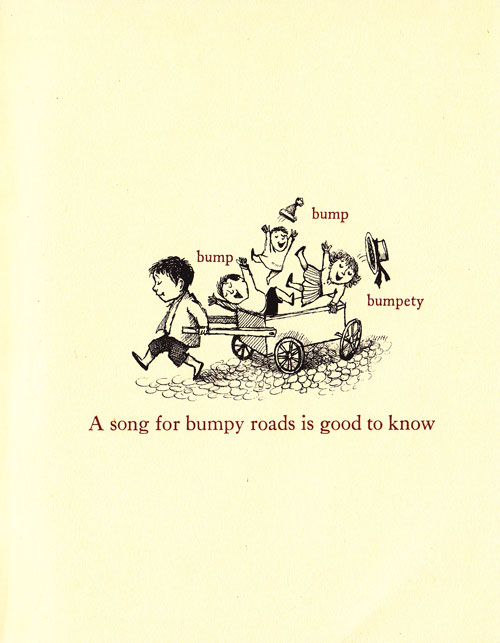
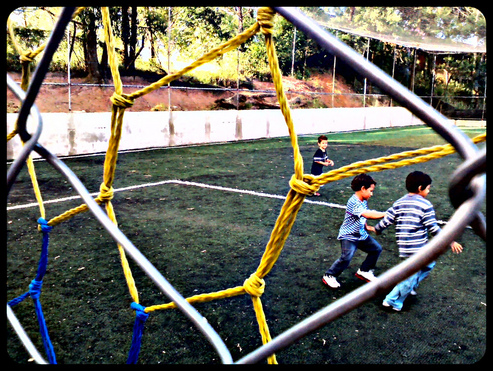

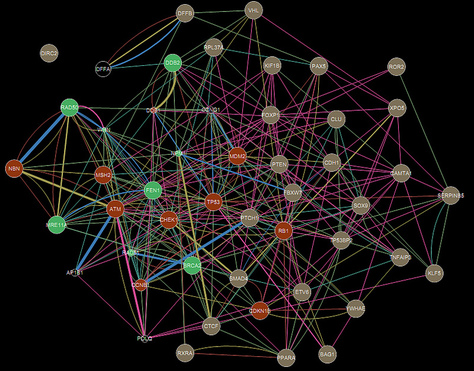
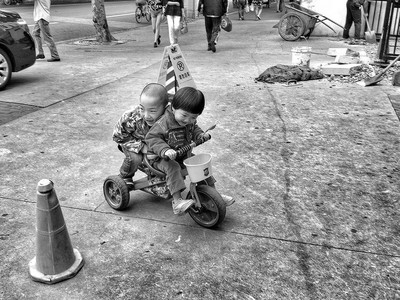
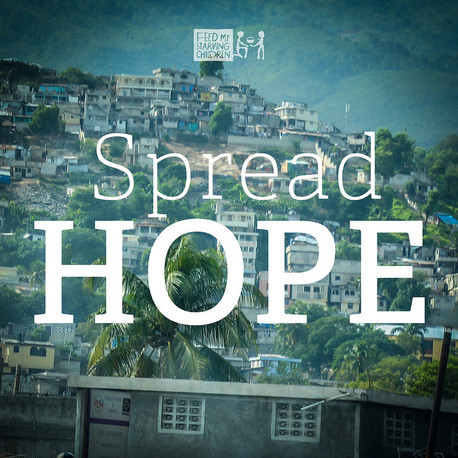

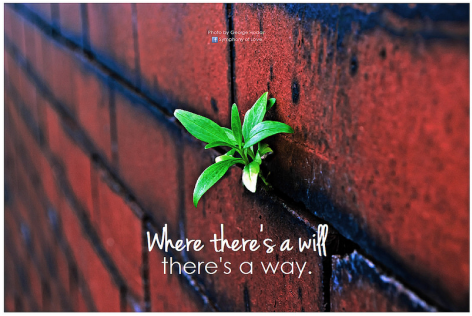
 RSS Feed
RSS Feed